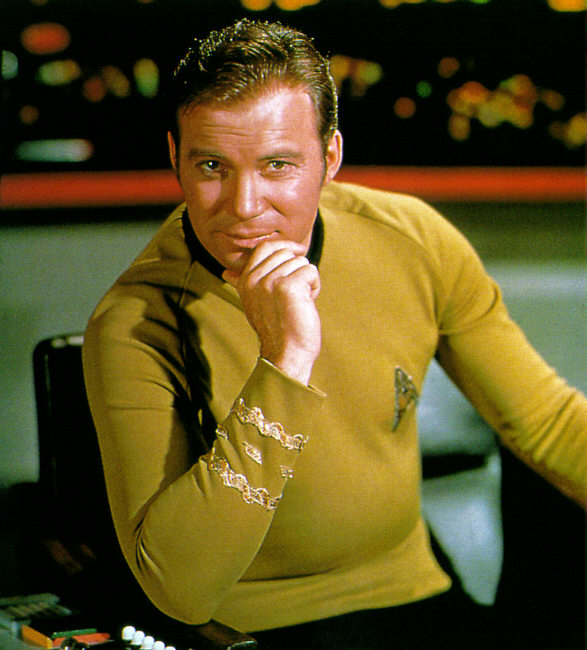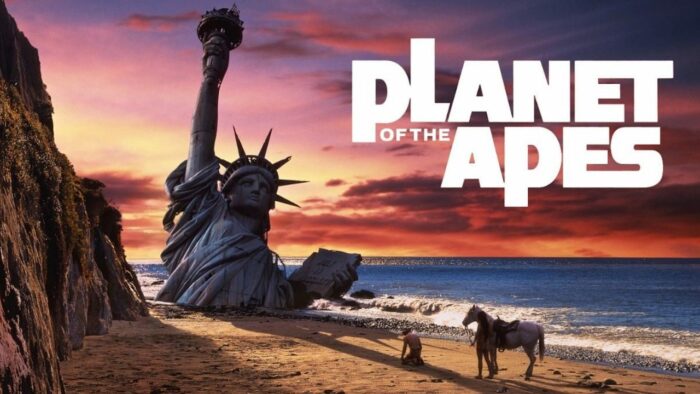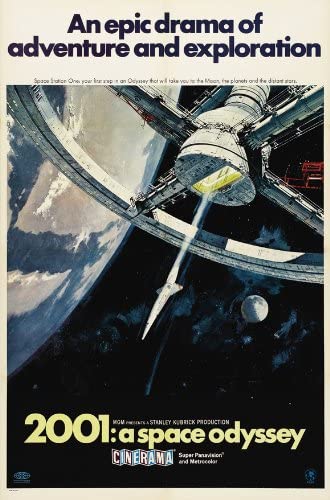My Screenwriter Mom Introduced Me to Fantastic Sci-Fi in the 1960s
I stood in Times Square, gazing at the Empire State Building mere blocks away. The year was 1968. This was the closest I’d ever been to King Kong’s last stand.
Then my mother pulled me from my vantage. At this moment, Times Square’s family-friendly makeover was still years in the future, so the nighttime sidewalk was not the best hangout for a six-year-old.
Besides, another famous primate movie was about to begin.
How I discovered the original Planet of the Apes
Planet of the Apes, the sci-fi hit of early 1968, filled the screen. Even before a single ape charged into view, I was hooked, intrigued by the auroras streaking cockpit windows of the spacecraft Icarus while its skipper (Charlton Heston) finished his audio log and entered suspended animation. I asked Mom questions—like: What did it mean when the apes wanted to “geld” Heston’s character?—and received whispered answers. I enjoyed the film, right to the surprise ending at the shattered Statue of Liberty, another landmark of the city I was visiting.
As we left the theater, Mom elaborated on the nuclear war that had destroyed civilization. Radiation had obviously mutated apes into the talking masters of the post-apocalypse.
This may have been heavy subject matter for a youngster. But my mother, hippie-era screenwriter Elinor Karpf, deemed the story suitable for her son.
Why my mother introduced me to fantastic stories
Mom loved speculative fiction, especially sci-fi movies and TV shows, and shared that love with me early and often. This tradition started before we relocated to Los Angeles when I watched King Kong on Chicago TV while keeping open the lavishly illustrated book Prehistoric Animals to cross-check the fauna of Skull Island.
 By 1968, the tube also brought weekly installments of Star Trek and Voyage to the Bottom of the Sea, with flexible bedtimes on those nights. Mom thought Star Trek was brilliant but chided Voyage to the Bottom of the Sea for monsters and plots that lumbered. Still, not long after our arrival in California, she took me to the 20th Century Fox lot to meet stars Richard Basehart and David Hedison. And if that wasn’t enough, I was regularly squired to the local newsstand for latest issues of Marvel comics. Back then, nobody realized this “kid’s stuff” would be the basis of Hollywood’s biggest blockbusters in fifty years.
By 1968, the tube also brought weekly installments of Star Trek and Voyage to the Bottom of the Sea, with flexible bedtimes on those nights. Mom thought Star Trek was brilliant but chided Voyage to the Bottom of the Sea for monsters and plots that lumbered. Still, not long after our arrival in California, she took me to the 20th Century Fox lot to meet stars Richard Basehart and David Hedison. And if that wasn’t enough, I was regularly squired to the local newsstand for latest issues of Marvel comics. Back then, nobody realized this “kid’s stuff” would be the basis of Hollywood’s biggest blockbusters in fifty years.
The decades when sci-fi began delving deeper
During this year, sci-fi reached an inflection point between the cheese of the 1950s and enlightenment of the current decade. But not everything from Mom’s adolescence was passé, proven by broadcasts of Forbidden Planet, The Day the Earth Stood Still, and The War of the Worlds. These atomic-age parables warned against man playing God, just as the novel Frankenstein had a century-and-a-half earlier.
But were we outgrowing God now that we could trespass in the heavens? George Pal’s version of The War of the Worlds provided an answer. Pastor Matthew says of the invading Martians, “If they’re more advanced than us, they should be nearer the Creator for that reason.” Then he approaches their war machines in peace, reciting Psalm 23, only to meet a heat ray. By the end the Martians also die, succumbing to bacteria “which God, in his wisdom, had placed on Earth.” The meek had already inherited said planet. We held our inheritance because the Lord was on our side.
So how much speculative fiction could one boy take? Turns out quite a bit more. The next big sci-fi release eclipsed Planet of the Apes, and we were in line to see it. 2001: A Space Odyssey debuted as a masterpiece of the genre and cinema in total. This time I had plenty more whispered questions, but six-year-old children weren’t the only moviegoers trying to figure out the story.
After the ending, Mom told me the aliens who sent the monolith had captured Dave the astronaut for study. That conclusion aligned with later explanations from director Stanley Kubrick and novelist Arthur C. Clarke.
“But why did they turn him into a giant baby?” I asked.
“Rebirth,” Mom said. “They turned him into something new.”
“Dave died,” I said. “Was that him in heaven?”
“What do you think?”
Mom always wanted me to think and play with the stories I watched with her.
That is the interactivity of speculative fiction—the gaps we fill as fans. These stories leave something to the imagination and stretch our vision. We’ll come back for more. Revivals and reruns churned the great sci-fi movies and TV shows during my formative years.
Then a new film finally outdid 2001’s groundbreaking special effects.
As a high school freshman, I returned with Mom to the 20th Century Fox lot for the sneak peek of Star Wars. The showbiz audience shed its professional cool and screamed like teenyboppers.
One parent’s legacy through decades of sci-fi
A quarter-century after the night in Times Square, I took my son, Brian, to the Famous Monsters of Filmland Convention. Later, The Twilight Zone marathons became the daddy-daughter tradition with his sister, Amanda. Now my grandson, Mason, is ready for the journey. I have Voyage to the Bottom of the Sea on Blu-ray with a Voyage to the Bottom of the Sea throw blanket (yes, there is such a thing) to warm us during the binge.
In 2013, Mom went home to Jesus. If she had stayed, she would be leading the latest watch parties. She would cheer her grandson’s critiques, so like her own, and tell her granddaughter about seeing The Twilight Zone first-run while in college. She would encourage her great-grandson to point out the “monkeys,” from the hominids circling the monolith to the big one battling biplanes above Manhattan.
My mother’s love and lessons are framed with speculative fiction and etched in scriptural truths. In my memory, it will always be 1968.
When she speaks, her words are wise, and she gives instructions with kindness.
—Proverbs 31:26 NLT





























thanks, Jason. Great story and background.
Thanks, Jon. No better place than Lorehaven to tell my story.
Ha–I haven’t thought of Voyage to the Bottom of the Sea in years and years.
David, now it will be just like a song you can’t get out of your head! ? My wife, Anni, got me the complete series on disc (yes, I’d put it on my Amazon wish list). The fine print indicated the collection was from the UK, requiring purchase of an all-nations disc player. Boy, do I have an understanding wife!
I loved reading about your childhood with your wonderful mom. You were really lucky.
Indeed. ❤️